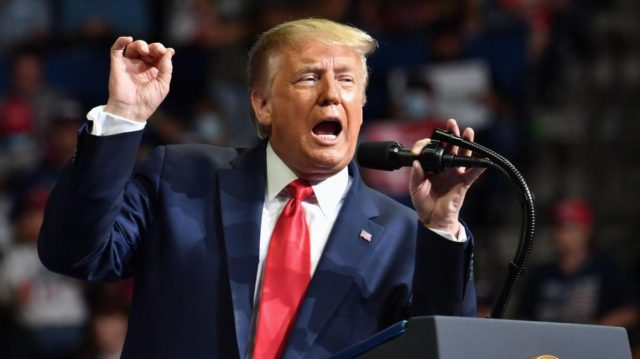
Nigerian entrepreneurship and creativity have always found a home in the United States—until now.
After winning a court victory with his initial travel ban that targeted some predominantly Muslim countries, U.S. President Donald Trump has followed up with another sweeping measure, this time blocking immigration from Eritrea, Kyrgyzstan, Tanzania, Myanmar, Sudan, and Nigeria. None of this is justifiable, but the Nigeria ban is especially questionable. It’s clear that Trump’s new Nigerian immigration ban was not about security issues, Nigeria has never been named in any terrorism-related threats to the United States—in spite of the challenges the country faces at home from Boko Haram, inflation, and a struggling economy.
If not security, what was it really about? Definitely not about “getting the best people,” as Trump likes to say of the types of immigrants he supposedly wants. Nigerians are some of the best-educated immigrants in the United States, often even ahead of other immigrant groups like Asians and Hispanics. According to U.S. Census Bureau data, about 17 percent of Nigerian immigrants have master’s degrees while about 4 percent have doctorates. Nigerians go to school, get jobs, adapt to the society, pay taxes, write books, raise children, work in the movie and television industry, go into law and politics, and generally contribute positively to American society.
It’s not about economics either. Nigerian immigrants sent about $17.5 billion back home in 2019, $6.2 billion of it from the United States, illustrating their success in their adopted country—where they also pay taxes, invest in businesses, pay for goods and services, and pay into Social Security, some of which they don’t end up using because many return home after they retire. Many green card holders who shuttle between Nigeria and the United States also pay taxes in their home country while they continue to pay and contribute to American society.
So what is the ban really about?
Trump gave the game away in 2017 when he asked hypothetically why the United States was not getting immigrants from countries like Norway. Immigrants from Nigeria, he was reported as having said; don’t often return to their “huts” after encountering the American experience. It was always about curbing certain types of immigrants who look a certain type of way coming from a certain type of place. Nothing else makes sense.
Immigrants finding America secure enough to live and thrive in, safe from many of the troubles they left back home, should make a U.S. president proud. After all, many of the people deciding to settle and work in the country have often benefited from the country’s largesse in some way, either from scholarships or student assistantships or grants. Why would they be a net negative to American society? Now, all immigration visas from Nigeria, including family-based ones, have been suspended.
Nigeria’s dynamic population, unique history, and innovative people have made it a particularly fond of emigration and travel. It is not always about escaping from any particular hurt or running away. Nigerians enjoy adventure, trade, and the joy that comes with contact with a different place. A popular saying in Nigeria goes: “If you go anywhere in the world and a Nigerian is not there, you are advised to leave immediately. Something is certainly wrong!” They establish communities and contribute to the social, political, and economic fabric of the place. Even the Oxford English Dictionary just added a whopping 29 words and expressions of Nigerian English into its lexicon, showing how Nigerian pragmatism and entrepreneurship reflect the people’s embrace of new things, including language and culture.
But it’s not just about success and innovation. Ordinary families don’t deserve the harm this ban will cause. The New York Times just published an example of family bonds that will be torn apart with this new policy change.
In some ways, America’s loss may be Nigeria’s gain. In the last 10 years, many young educated Nigerians have returned home to found start-ups and try to change society.
Migration enriches each generation, provides new opportunities, and new ways of seeing the world. As Sen. J. William Fulbright once said, it adds “a little more knowledge, a little more reason, and a little more compassion into world affairs and thereby increase[s] the chance that nations will learn at last to live in peace and friendship.”
It might seem pointless appealing to Trump administration since its careful scheming to put this rule in place does not seem based on anything other than selfishness and short-sightedness. But the losers will not just be Nigerians. Another loser is the idea of the United States as a shining city on the hill—an open and tolerant society welcoming of all people willing to embrace this adventure.
Gift Joseph Okpakorese
Staff Writer







